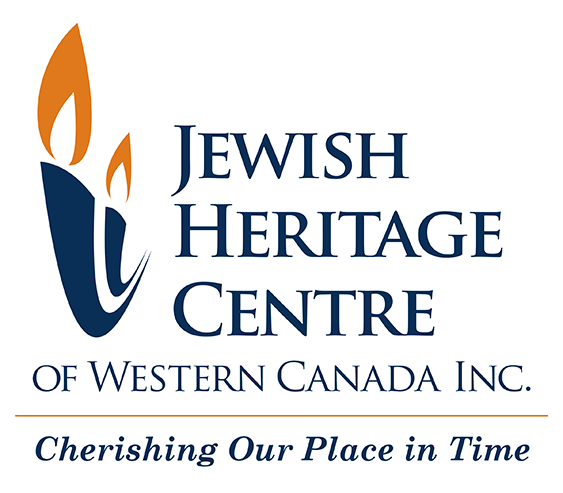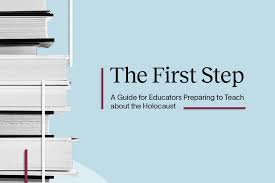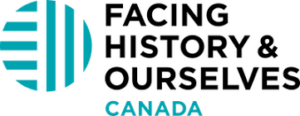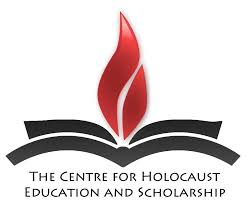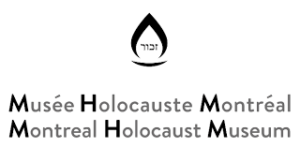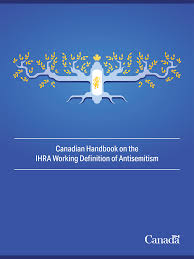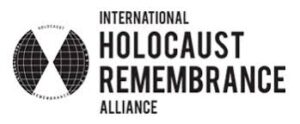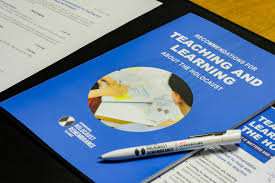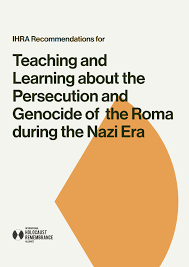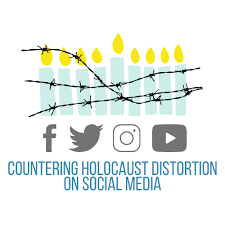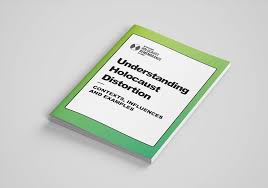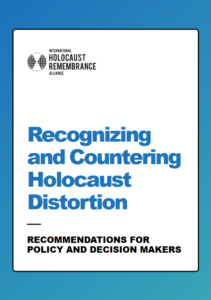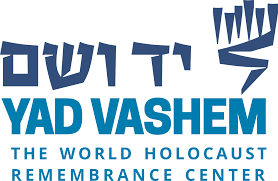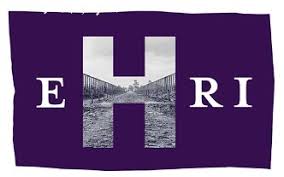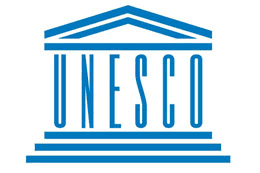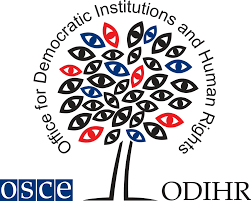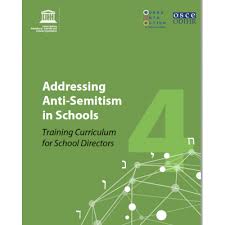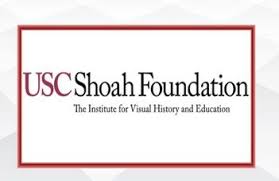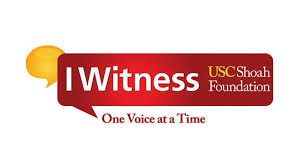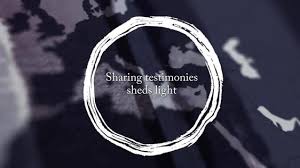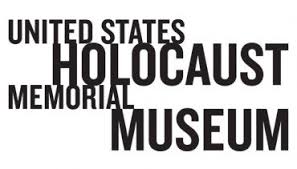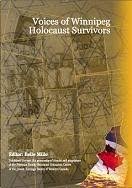short Online Resources for Educators and Students
CANADIAN RESOURCES
The Jewish Heritage Centre of Western Canada offers in-person school presentations, professional development, access to survivor testimonies and photos, annual province-wide programming, as well as essay and film competitions.
RESOURCES FROM THE AZRIELI FOUNDATION HOLOCAUST SURVIVOR MEMOIRS PROGRAM
The Azrieli Foundation Survivor Memoirs Program provides free resources in both English and French, including books, education programs and lesson plans, the digital platform Re:Collection and short films. Recollection – An extraordinary new tool from the Azrieli Foundation.
NEW! The First Step: A Guide for Educators Preparing to Teach about the Holocaust A new guide created by the Azrieli Foundation based on our many years of working with teachers and Holocaust survivors. The Holocaust Survivor Memoirs Program was established by the Azrieli Foundation in 2005 to collect, preserve and share the memoirs and diaries written by survivors of the Holocaust who came to Canada. These memoirs – published in both English and French – are distributed free of charge to educational institutions across Canada. A variety of bilingual educational materials are available to support teachers who are using the memoirs in their classrooms.
New from the Azrieli Survivor Memoirs Program:
At Great Risk: An Education Program on Holocaust Rescue and the Righteous Among the Nations
14+
4 Lessons + Optional Final Assignment
This program uses three survivor stories to explore the theme of Holocaust rescue and the designation of the Righteous Among the Nations.
During the program, students will:
Learn about the historical context of the Holocaust
Read one memoir on the theme of Holocaust rescue
Engage in meaningful discussions with peers
Thoughtfully reflect on personal opinions and feelings
Complete a final assignment (optional)
After completing the Education Program, students will recognize that the act of rescue during the Holocaust was a rare occurrence due to the extreme risk associated with helping Jews during the Holocaust. They will develop a greater understanding of the complex context in which people made decisions that went against the rules of the society they were in, and the significant outcomes of those decisions.
Learning Goals
Learn about the Holocaust by discovering its historical context and understanding the dynamics of Holocaust rescue
Learn from the Holocaust by analyzing forces that shape human behaviour in times of crisis and applying this learning to become responsible global citizens
Reflect on the value of first-person testimonies in remembering and responding to past events
Facing History and Ourselves – Through rigorous historical analysis combined with the study of human behavior, Facing History’s approach heightens students’ understanding of racism, religious intolerance, and prejudice; increases students’ ability to relate history to their own lives; and promotes greater understanding of their roles and responsibilities in a democracy.
Judaism and Jews in Canada:
Facing History & Ourselves Canada has created Being Jewish in Ontario which explores the diversity of Jewish life today. The film was created to provide an important introduction to this lesson on Jewish heritage, identity, and community. It features voices of Jewish families talking about their Jewish identities, and their experiences living in Ontario.
Components of Jewish Identity This tool allows students to take a self-guided tour through components of Jewish life for many Jews, and it can serve as an introduction to the multifaceted nature of Jewish identity. It does not contain an exhaustive list of all aspects of Jewish identity.
New Resources from the Centre for Holocaust Education and Scholarship (Ottawa)
(Lesson plans and resources suitable for grade six)
Antisemitism in Canada: CMHR film is now available online.
Educational resources for elementary, middle school, and high school in English and French.
The Canadian Handbook on the IHRA Definition of Antisemitism
IHRA (INTERNATIONAL HOLOCAUST REMEMBRANCE ALLIANCE) RESOURCES
The International Holocaust Remembrance Alliance is the only intergovernmental organization with a mandate focused on addressing contemporary challenges related to the Holocaust and genocide of the Roma. We foster education, remembrance, and research about what happened in the past, to build a world without genocide in the future.
The International Holocaust Remembrance Alliance has released new and updated Recommendations for Teaching and Learning about the Holocaust, published in partnership with UNESCO.
These Recommendations, written by a group of international experts, are crafted to help educators and teachers with fact-based and educationally sound techniques for teaching the complex and nuanced history of the Holocaust. The publication – which is aimed at policymakers, textbook editors, curriculum planners, school administrators, as well as educators and teachers – provides compelling reasons for including the Holocaust in education, gives practical guidance in the search and selection of appropriate sources, and makes it easy to bring curricula in line with the latest research.
By combining many years of specialist experience with new knowledge on the topic, the Recommendations empower educators and teachers to collaborate across fields, develop their professional skills, and confidently teach about the Holocaust.
Launched on 4 December 2019 at an event in Luxembourg City, which brought together representatives of ministries from the more than 30 countries that make up the IHRA, the Recommendations for Teaching and Learning about the Holocaust are part of the IHRA’s work to strengthen, advance, and promote Holocaust education, remembrance, and research worldwide.”
Stories of Impact: Combating antisemitism through education: https://holocaustremembrance.com/stories-impact-combating-antisemitism-education
Between 1933 and 1945, European Roma were targeted by Nazi Germany and other Fascist states and their collaborators, fuelled by long-standing discrimination and a racial ideology. It is estimated that up to 500,000 Roma were murdered, while many were imprisoned, used as forced laborers, or subjected to forced sterilization and medical experimentation. Across Nazi-occupied Europe, the persecution of Roma was carried out in different ways by different perpetrators, including occupying forces and local populations, which contributed to varying experiences among Roma communities.
The IHRA Recommendations for Teaching and Learning about the Persecution and Genocide of the Roma during the Nazi Era contribute to the IHRA strategic priorities of safeguarding the historical record of the Holocaust and the genocide of the Roma and countering distortion. With the publication of these Recommendations, the IHRA seeks to provide a strong foundation to support countries in including the history of the persecution of Roma in mainstream research, memory culture, and education. These Recommendations aim to assist not only policymakers but also educators and practitioners in their efforts.
https://humanrights.ca/story/we-are-roma
This is the official website of the project “Countering Holocaust distortion on social media. Promoting the positive use of Internet social technologies for teaching and learning about the Holocaust”. The project focuses on social media as a positive technology to counter Holocaust distortion. Some previous experiences show that providing positive narratives has the advantage of avoiding the validation of distortion that can stem from directly engaging with Holocaust deniers or distorters, and activates important resources for the future to counter narratives around which distortion rumours are based.
Understanding Holocaust Distortion: Context, Influences, and Examples
Understanding Holocaust Distortion – Contexts, Influences and Examples
Published in November 2021, the IHRA’s publication “Understanding Holocaust Distortion: Contexts, Influences and Examples” builds on previous resources to provide a strong, expert-produced and reviewed foundation on international manifestations of Holocaust distortion.
Recognizing and Countering Holocaust Distortion: Recommendations for Policy and Decision Makers
Published in January 2021 in partnership with UNESCO, the IHRA’s publication, “Recognizing and Countering Holocaust Distortion: Recommendations for Policy and Decision Makers,” represents an important first step toward tackling this serious issue.
Yad Vashem’s Online Video Learning – An excellent and substantial source for video resources for educators from Yad Vashem, the World Holocaust Remembrance Centre.
Yad Vashem and Tel Aviv University MOOC on The Holocaust – An Introduction (I): Nazi Germany: Ideology, The Jews and the World
Yad Vashem New MOOC on Holocaust Poetry:
The Echoes and Reflections Timeline of the Holocaust is an excellent tool for online teaching chronicling key dates in the History of the Holocaust from 1933 to 1945.
Yad Vashem MOOC on Antisemitism: From Its Origins to the Present
A list of Massive Open Online Courses (MOOS)
From University College London and Yad Vashem:
Teaching the Holocaust: Innovative Approaches to the Challenges We Face
EHRI MOOC The Holocaust through the Perspective of Primary Sources
What sources are available to us when researching and learning about the Holocaust? Where can they be found? How can we use them? And what can they teach us?
In this new MOOC (Massive Open Online Course), “The Holocaust through the Perspective of Primary Sources”, we explore diaries, photographs, official Nazi documents, postwar survivor testimonies and much more – all together with leading scholars in the field. Course participants will become acquainted with original documents and gain hands-on experience in using them, while learning about their importance and the unique perspectives they provide us into this cataclysmic event.
Register for free at: https://coursera.org/learn/holocaust-…
Produced by EHRI, the European Holocaust Research Infrastructure in development with Yad Vashem.
New: toolkit for teachers: Who were the victims of the National Socialists (Nazis)
“Who Were the Victims of the National Socialists?” is a toolkit available for free download that invites you, students, to explore the history of different groups of people persecuted by the National Socialists. In this journey, you will create your own local history project together with your peers. In the process, you will discover what ignites your curiosity and what stories you wish to unearth and share within your own community.
The Toolkit encourages you, teachers, to fully empower your students to be agents of their own learning journey and thus to become researchers of their local history. Through active decision-making, teamwork, research and co-creation, your students will give voice to victims of National Socialism and contribute to local memory and community.
The Toolkit contains:
- Step-by-step guidance on how to create a local history project, including examples piloted by our teams from Belgium, Bosnia and Herzegovina, Denmark, Slovakia and Spain;
- Information sheets with historical background on different groups persecuted by National Socialism;
- Guidance on how to conduct interviews and analyze images;
- A glossary, timeline and map;
- Lists with additional resources (websites, archives, documentaries, books and articles) to help you with your research for your local history project.
UNESCO OSCE & ODHIR
What is Antisemitism? https://www.youtube.com/watch?v=YZgDGG4QwP0
The short video highlights the nature, origins, mechanisms and historical evolution of antisemitism, as well as its continued presence in today’s society and the importance of combatting it. It was funded by the European Union, as part of UNESCO’s programme on combatting antisemitism through education.
Addressing Antisemitism Through Education https://www.unesco.org/en/education-addressing-antisemitism
Online Antisemitism: A Toolkit for Civil Society
As the online space becomes increasingly important in the fight against antisemitism, this guide from B’nai B’rith International and ISD, in partnership with UNESCO, aims to build capacity among civil society to tackle this rapidly growing threat.
Recognizing the enormous capacity for positive action that the digital space offers, this practical and action-oriented resource aims to consolidate knowledge and provide a wide range of policy and community avenues for action.
The guide provides an overview of the online antisemitism threat landscape, a summary of existing policy responses on international and national levels across a range of European contexts, and a broad set of recommendations for civil society engagement with governments, platforms and wider communities to address this challenge.
UNESCO/ODIHR launch Turning Words into Action–Addressing Antisemitism in Schools: Training Curricula
This four-volume publication on “Addressing Antisemitism in Schools: Training Curricula” was developed jointly by the OSCE Office for Democratic Institutions and Human Rights (ODIHR) and UNESCO, with the support of University College London’s Centre for Holocaust Education. The publication, intended for trainers, aims to assist teachers and school directors in preventing and responding to anti-Semitism. It provides practical guidance on addressing anti-Semitism and countering prejudice in and through education, while promoting human rights, global citizenship education and gender equality. The four volumes are designed for trainers of (1) primary school teachers, (2) secondary school teachers, (3) vocational schoolteachers, and (4) school directors. The publication is part of ODIHR’s Turning Words into Action to Address Antisemitism project, and is included within the framework of UNESCO’s programme on Global Citizenship Education.
USC Shoah Foundation’s Visual History Archive’s online portal allows users to search through and view more than 55,000 video testimonies of survivors and witnesses of genocide. Among these are the Jewish Heritage Centre’s collection of interviews with local Holocaust survivors as well as the rest of the Canadian collection. The archive is an invaluable resource for humanity, with nearly every testimony encompassing a complete personal history of life before, during and after the subject’s firsthand experience with genocide. Access is available through the portal for most but not all of the interviews. The Jewish Heritage Centre is the only full access centre between Ontario and Alberta. Researchers and the general public are welcome to book an appointment to search our full access site in our offices. Please call 204-478-8590 or email [email protected].
IWitness: Addressing Antisemitism : In the context of a global rise in antisemitism, teachers can play a fundamental role in strengthening the resilience to associated narratives. This website provides teachers with helpful guidance, resource and materials.
Testimony Speaks: Countering Antisemitism – USC Shoah Foundation’s Countering Antisemitism Through Testimony Program integrates contemporary personal stories of witnesses to antisemitism into outreach, education and research programs to help counter antisemitism today. Newly recorded testimonies (link is external)from Belgium, Denmark, France, Hungary, Sweden, the United Kingdom, and the United States are being used to engage audiences to develop their understanding of antisemitism as a dangerous form of hate and one of several facets of hatred that threaten all of humanity. In 2013, USC named Executive Director Stephen Smith the UNESCO Chair in Genocide Education.
UNITED STATES HOLOCAUST MEMORIAL MUSEUM
New lesson plans from the United States Holocaust Memorial Museum
Includes a number of new topics such as analyzing memes, Black Americans and the Nazi Olympics, new lesson plans on the Diary of Anne Frank, Elie Wiesel’s Night and more.
The United States Holocaust Memorial Museum has added new Teaching Materials Using Literature . These include lesson plans, timeline cards and more for Elie Wiesel’s Night and The Diary of Anne Frank as well as for the book The World Must Know. As well, a broad selection of compelling teaching materials addresses such issues as Black Americans and the Nazi Olympics. Newspapers and the Holocaust, and Immigration and Refugees.
Teaching about Antisemitism – From the United States Holocaust Memorial Museum. What is the history of antisemitism, and what role did it play in the Holocaust? This lesson plan helps students understand how hatred can contribute to violence, mass atrocity, and genocide. They also will make connections to events today—learning to think critically when they hear about antisemitism and hate in their own world.
BOOKS AND FILMS
When teaching and learning about the Holocaust, it is essential to use primary sources such as letters, diaries, newspapers, speeches, works of art, orders, and official documents of the time as well as survivor memoirs. Novels, novellas, poems and feature films about the Holocaust can never replace a thorough study of the historical events, but they can offer a personal approach and specific insights into the nature and the consequences of the crime. Works about the Holocaust of high aesthetic value are likely to create empathy and understanding by focusing on the individual experience of the victims and facilitating understanding of events. However, they can only achieve this if their language and composition avoid sentimentalization and kitsch.
Fictional resources should respect the specific events, facts and conditions of the Holocaust, without ahistorical manipulation and change. This principle extends to films based on biographical or memoir literature, which frequently conceal considerable liberties with the truth
behind the phrase ‘Based on a true story’.
However, fictional and imaginative resources can also:
● Develop critical thinking about historical narratives and develop historical consciousness;
● Facilitate interdisciplinary learning about the Holocaust;
● Help learners identify the language of discrimination and racism.
Voices of Winnipeg Holocaust Survivors – the stories of 73 Winnipeg survivors before during and after the Holocaust.
Understanding and Teaching About the Holocaust by Avinoam Patt and Laura Hilton
Recommendations from the Holocaust Educational Trust
The Paper Nazis. A 44 min documentary by local filmmaker Andrew Wall that examines the history of Winnipeg’s Fascist and Nazi movements of the 1930’s.
Thank you to educator Stephanie Zirino for compiling this wonderful resource list of books and podcasts aimed at Middle School and High School Students, with additions from the JHCWC.
Additional readings further to our program on the racial laws and Antisemitism in fascist Italy. If you missed the programming, you can view it now on our YouTube channel.
We present a curated list of Holocaust films. recommended for educators, students and the general public. Of course, this list is by no means exhaustive. Many are available on Netflix and Amazon Prime, as well as other streaming services. Descriptions of the films are taken from a variety of websites and include reviews and summaries. Please note that when using film in the classroom, it is essential to provide a solid historical background first/ As well, context is key. Film is an excellent way to enrich Holocaust education, but it cannot replace other educational resources.
VARIOUS OTHER RESOURCES
The Jewish Partisan Educational Foundation offers exciting e-learning courses which focus on resistance during the Shoah. Among the interesting e-learning topics is a course which addresses the role of women in the Partisans. Many of these women were teens – the same age as the students. Lesson plans are available for these 20-60 minute courses.
Mémorial de la Shoah-Centre de documentation – a multilingual website with excellent resources for teachers, including filmography and multimedia resources.
The Kazerne Dossin website from Belgium. A multilingual website. Kazerne Dossin does not only deal with the ‘Belgian case’ but it is also a museum about massive violence. Taking the Holocaust as basis, Kazerne Dossin searches for timeless mechanisms of group pressure and collective violence that can result under certain conditions in mass murder and genocide. This question touches the core of modern human rights with emphasis on freedom and non-discrimination. The behaviour of the perpetrators and opportunists serves as basis for alerting the visitor to collective violent mechanisms among us and to the possibility to say ‘no’.
Memories of the Occupation of Greece – In Canada, like Germany, very little is known about the German occupation of Greece. In Greece, however, the occupation and the crimes committed remain very present. For the project “Memories of the Occupation of Greece” at least 70 biographical interviews with Greek contemporary witnesses will be filmed. Their memories of the occupation will be preserved for the future and edited for presentation on the internet. An excellent source for educators and students about this little-known chapter of the Holocaust which wiped out 87% of the pre-war Jewish population of Greece.
History Unfolded: US Newspapers and the Holocaust – What could Americans have known about the Nazi threat from reading their local newspapers in the 1930s and 1940s? An activity which can be easily adapted for Canadian classrooms.
Forbidden Music Regained – The Leo Smit Foundation has launched a new English language website, “Forbidden Music Regained” which offers access to a searchable database with 35 biographies and nearly 1900 works and audio samples by composers who lived and worked in the Netherlands and were persecuted in World War II.
The Fate of European Roma and Sinti During the Holocaust – Includes an excellent manual for teachers.
The Holocaust and Other Genocides – With links to versions in many languages.
Women in the Holocaust – A series of resources focusing on the experiences of women in the Holocaust. This growing database of lectures aims to contribute and enrich interdisciplinary multicultural research, about women’s experiences, whether they were victims, survivors, resisters, rescuers, bystanders, or perpetrators.
